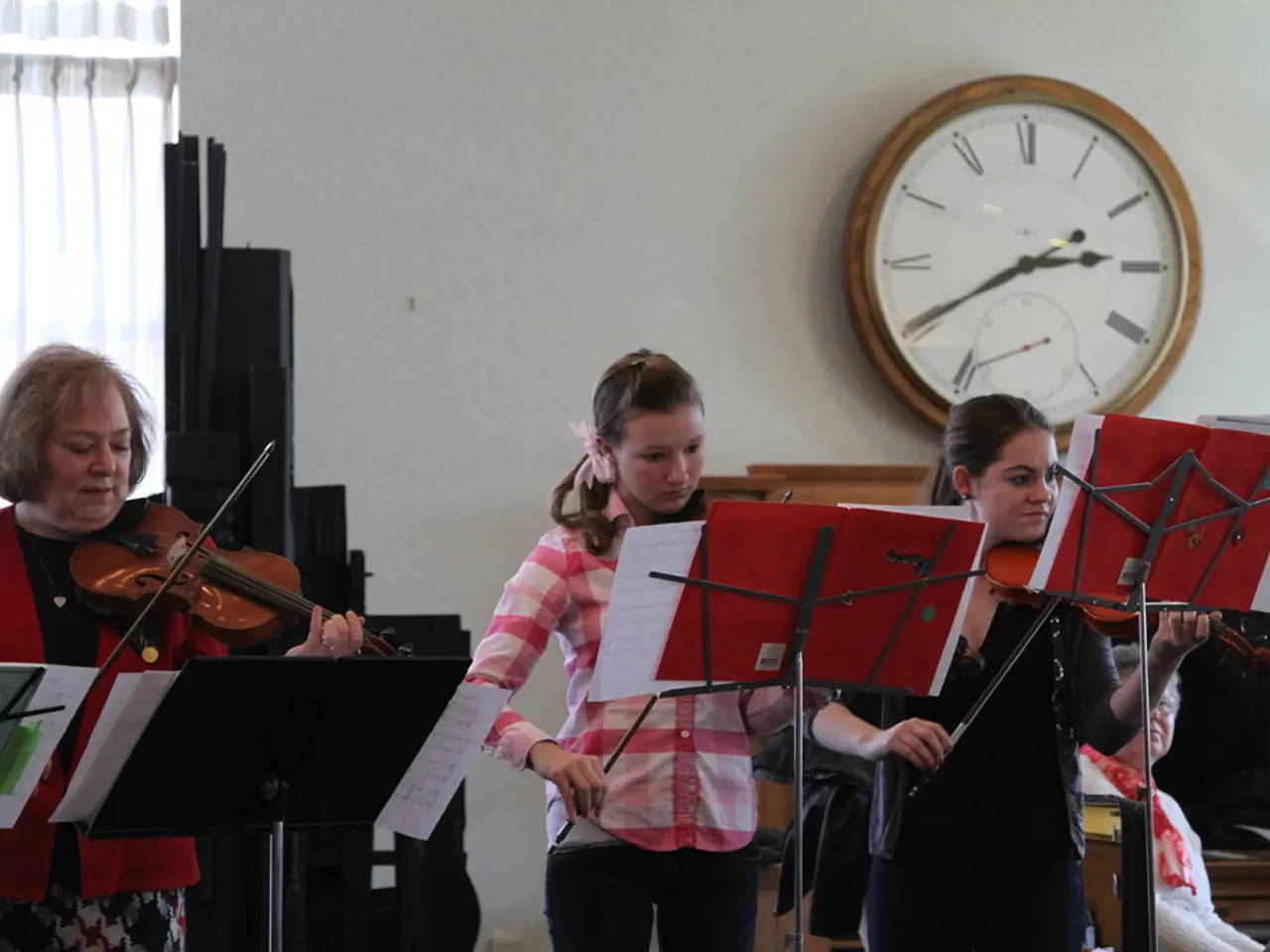Wife serves as Wim Wenders' initial critic
Wim Wenders continues to be an active figure in the film industry, currently working on a new project and discussing it with Deutsche Presse-Agentur[4]. The director, who is known for his significant contributions to German cinema, values the feedback and criticism of his wife, who often serves as his first critic[5].
Wenders' wife, however, is not easily convinced. She rarely finds anything good in his work, a challenge that Wenders finds beneficial[6]. He shares his film cuts with a select group of friends for their opinions, finding their insights invaluable in refining his work[7].
Wenders' collaborative approach has been a defining characteristic of his career. During the rise of the 'New German Cinema', he worked closely with fellow filmmakers, creating a dynamic, interconnected network of artists[8]. This collaborative spirit was evident even in the movement's early days, when filmmakers would show each other their work[9].
Wenders recalls the 'New German Cinema' as a time when filmmakers were in the same boat, navigating the complexities of the industry together[10]. His collaborations with other filmmakers, such as Werner Herzog and Rainer Werner Fassbinder, helped establish this influential movement[11].
The 'New German Cinema' was characterized by its emphasis on collaboration and the sharing of ideas, blending influences and engaging in projects that bridged German film with international styles and artists[12]. Wenders' partnership with director Nicolas Ray on Lightning Over Water (1980) is a prime example of this cross-generational exchange, revering Ray’s influence while expanding New German Cinema’s narrative and aesthetic boundaries[2].
Wenders' openness to new technologies and art forms, and collaborations with key figures such as Pina Bausch, amplified the movement’s poetic and explorative character[2]. These cooperative ventures reinforced New German Cinema’s focus on confronting Germany’s complex historical and cultural past, reflected in their films' themes and innovative storytelling[1].
Wenders' 80th birthday is on August 14[13], marking a significant milestone in his career. His contributions to German cinema, through films such as "Buena Vista Social Club", "Paris, Texas", "Wings of Desire", and "The American Friend", have made him a household name in the industry[14]. As he continues to work on new projects, Wenders' influence and impact on the world of film remains undeniable.
[1] https://www.britannica.com/topic/New-German-Cinema [2] https://www.tate.org.uk/whats-on/tate-modern/exhibition/wim-wenders [3] https://www.bfi.org.uk/news-opinion/news-bfi/new-german-cinema-at-bfi [4] https://www.deutsche-presse-agentur.de/ [5] https://www.wimwenders.com/en/about/ [6] https://www.wimwenders.com/en/about/ [7] https://www.wimwenders.com/en/about/ [8] https://www.britannica.com/topic/New-German-Cinema [9] https://www.tate.org.uk/whats-on/tate-modern/exhibition/wim-wenders [10] https://www.bfi.org.uk/news-opinion/news-bfi/new-german-cinema-at-bfi [11] https://www.britannica.com/topic/New-German-Cinema [12] https://www.tate.org.uk/whats-on/tate-modern/exhibition/wim-wenders [13] https://www.wimwenders.com/en/about/ [14] https://www.britannica.com/biography/Wim-Wenders
Wenders' collaborative approach in filmmaking extends beyond his work with fellow filmmakers, as he also seeks insights from friends, finding their opinions invaluable in refining his work’s quality. His wife, however, is not easily convinced, presenting a constant challenge that Wenders finds beneficial for his movie-and-tv projects, which fall under the broad entertainment industry.








